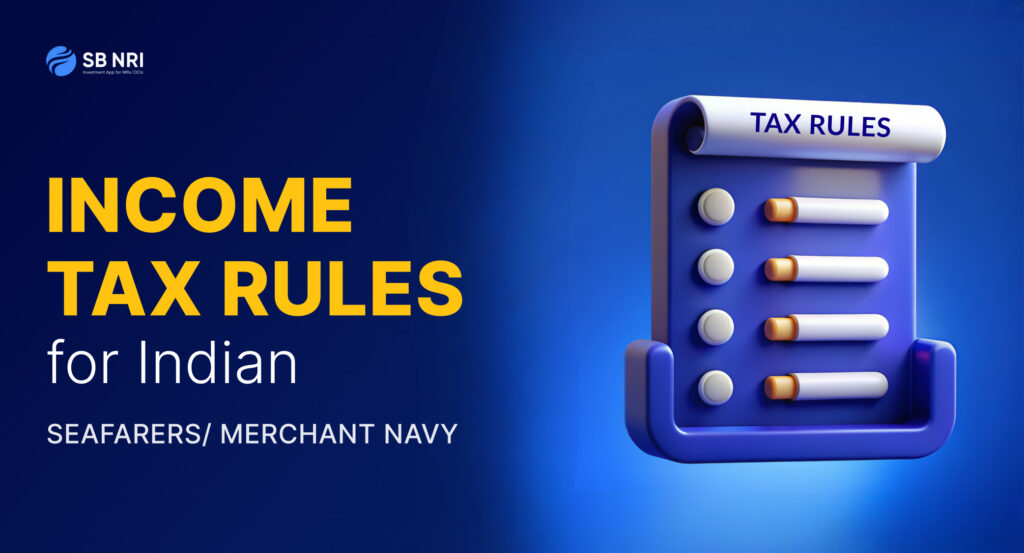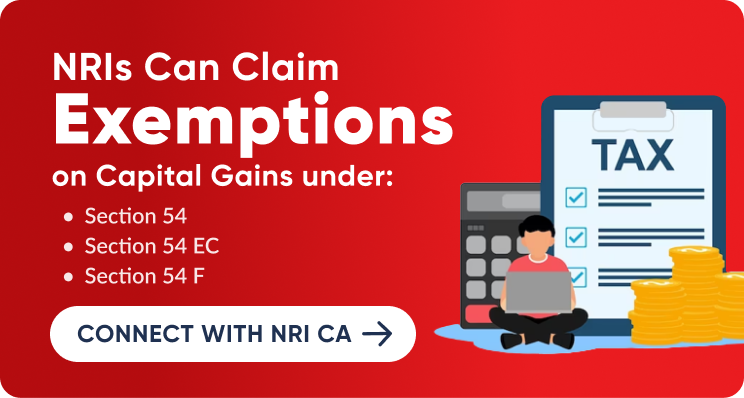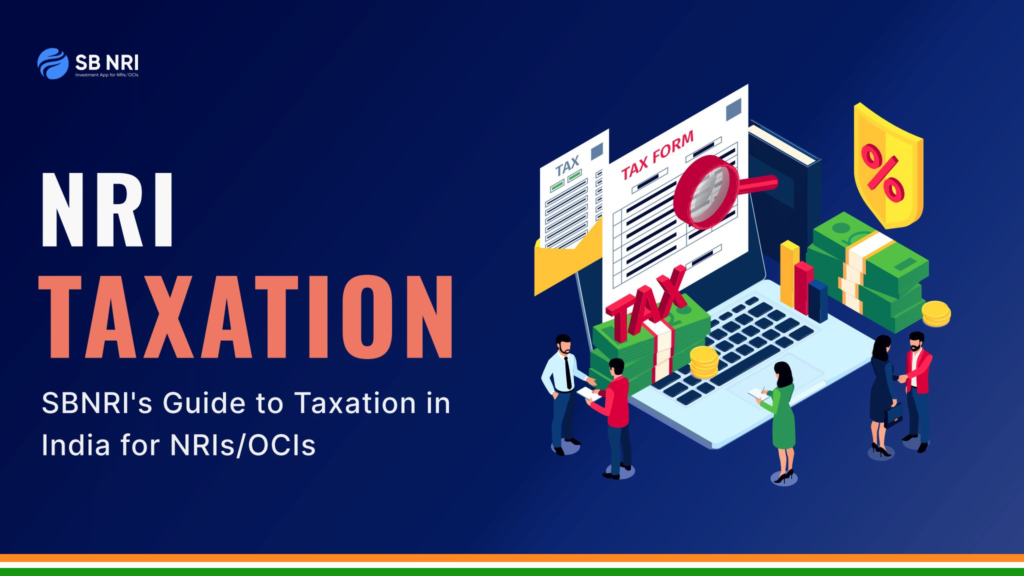
A seafarer, merchant navy worker, or mariner is a person who travels on a boat or ship on the sea. Seafarers hold a variety of ranks and professions, and each of the crew members executes unique responsibilities. A seafarer navigates water bone vessels or assists as a crew member in the operation or maintenance of a ship. Seafarers receive remuneration in the form of salary from a ship owner or company. Income tax rules for Indian seafarers will depend on their residential status. However, there is no specific provision for income tax exemption for Indian seafarers.
Income Tax Rules for Indian Seafarers/ Merchant Navy
Here are the important points about the residential status of seafarers and income tax rules:
Also read more ITR Filing for 2025 everything you need to know
Income tax on Seafarers/ Mariners
Tax on the income of a seafarer is applied based on his/ her residential status.
a. Income tax for resident seafarer
The salary of a resident seafarer or merchant navy personnel will be taxed as per the Indian Income Tax Law. There are no income tax exemptions for merchant mariners/ seafarers.
b. Income tax for non-resident seafarer
If a crew member of a ship works outside India for 183 days or more during the financial year as per his/ her CDS (Continuous Discharge Certificate) or passport, his/ her residential status changes to a Non-Resident Seafarer. Overseas salary of a non-resident seafarer/ Merchant Navy staff shall not be taxed in India.
Non-resident mariners need to open an NRI account to deposit their overseas income in India. You can find some of the best Bank Accounts for Seafarers/ Merchant Navy Professionals.

Calculation of Period Outside India
Rules applicable for voyages start and end outside India
Stamping dates in the passport are considered for the calculation of the period outside India. When you join and sign off from a ship outside India, passport dates are used for the calculation. However, dates of the CDC are taken into consideration at the time of scrutiny that you are abroad for the purpose of employment.
Rules applicable for voyages starting or ending in India
When you join or sign off from India, the CDC dates are used for the calculation of a period outside India.
Eligible voyage is a voyage undertaken by a ship carrying passengers or freight in international traffic where: either the port of origin or the port destination of a voyage is in India.
New Resident Provision from FY 2020-21
As per the new Section 6(1A), applicable from the financial year 2020-21, an NRI (including seafarer) can be categorized as a resident in India if his/ her stay in India is 120 days or more and his taxable income in India exceeds Rs. 15 lakh during a financial year. However, visiting NRIs, including Indian seafarers, whose taxable income in India is up to 15 lakh during the financial year will continue to remain NRI retrospectively if their stay in India doesn’t exceed 181 days.
Note: The ship income of a visiting NRI will not be included for calculation of Rs. 15 lakh.

Further, even if the Indian income of a seafarer exceeds Rs. 15 lakh and his stay in India is 120 days or more during a financial year, and he is categorized as a resident in India, as per the new NOR rules, he will be categorized a NOR (Not Ordinary Resident). Hence, his foreign income will not be taxable in India.
Income Tax Return Filing in India
As per the Income Tax Rules, a seafarer doesn’t need to file an ITR in India. Since a seafarer doesn’t pay tax or file an ITR anywhere in the world, it is important and beneficial for a seafarer to file an ITR in India. It will help you as an important document for various purposes, such as loan application, visa application, etc., and as evidence for any inquiry from the Income Tax Department in the future.
Also read: 5 Tips for NRIs Filing Income Tax Returns in India
Do Merchant Navy Officials Pay Tax in India?
Seafarers and merchant navy officials are not obligated to pay taxes or file Income Tax Returns (ITR) in any country worldwide. However, it is highly recommended and advantageous for seafarers to file an ITR in India, even though it is not mandatory according to the Income Tax Rules in India. By filing an ITR, seafarers can obtain several benefits, such as using it as a crucial document for purposes like loan applications and visa applications. Additionally, an ITR serves as a record and evidence to address any potential inquiries from the Income Tax Department in the future.
Also Read: Income Tax e-filing: Top 10 NRI Income Tax Filing Benefits
Benefits of ITR Filing in India for Seafarer and Merchant Navy
Filing Income Tax Returns (ITR) in India offers several benefits for seafarers and individuals working in the Merchant Navy. Here are some advantages:
- An ITR serves as proof of income and can be used as an essential document for various financial transactions, including applying for loans, mortgages, or credit cards.
- Many countries require proof of income and tax compliance for visa applications. Submitting your ITR can strengthen your visa application, as it demonstrates your financial stability and compliance with tax regulations.
- Filing an ITR regularly helps in maintaining a clean tax record and can prevent potential issues with the Income Tax Department in the future. It serves as evidence of compliance and can be used to counter any tax-related inquiries or disputes that may arise.
- Consistently filing ITRs builds a financial history and establishes a track record of income and tax payments. This can be beneficial when applying for financial services, such as loans, insurance policies, or investment opportunities.

Calculate your TDS Refund with SBNRI’s TDS Refund Calculator
A TDS refund is the process of reclaiming the excess tax deducted at source by the payer if the actual tax liability of the taxpayer is lower than the TDS deducted. This situation typically arises when the income tax calculated on the total income is less than the TDS already deducted. To claim a TDS refund, taxpayers need to file an income tax return (ITR). The Income Tax Department processes the ITR and verifies the details. If the tax department finds that the TDS paid is more than the actual tax liability, the excess amount is refunded to the taxpayer.
You can easily find out how much tax refund you can get by calculating your TDS Refund from this TDS Refund Calculator.
NRI Tax Services can assist seafarers with:
- Filing ITR and complying with tax laws
- Planning and structuring contracts
- Understanding residential status and related tax implications
- Handling RBI/FEMA rules for NRE accounts
- Representing before Income Tax Authorities, if needed
At SBNRI, we have simplified ITR filing for Seafarers and Merchant Navy through a smooth digital journey. Be it Basic Filing, Advanced Filing (includes Capital Gain, etc.), or Premium Filing (Foreign Income), we can help you assess the right computation and lower your tax liability.
“We’ve helped over 500+ NRIs/OCIs file ITR returns and more than 25,000+ across other taxation services last financial year and we’d love to help you out too”
You can download SBNRI App or connect with NRI Tax Expert team directly via the button below.
Looking for NRI ITR Filing? Connect with SBNRI NRI Tax Expert CA Today!

Access SBNRI’s Exclusive NRI Taxation Guide
NRIs and OCIs can now access SBNRI’s exclusive NRI Taxation Guide covering in-depth information about DTAA, Gift Tax, Rental Income Tax, ITR Filing, Types of ITR Forms for NRIs, Capital Gain Tax, Income Tax, and more. The report will help you understand India taxation on mutual funds, other asset classes and how you can comply with the regulations.

Access NRI Taxation report here
FAQs
Is it necessary for seafarers to file Income Tax Returns (ITR) in India?
Filing ITR is not mandatory for seafarers under Indian tax laws if they don’t have taxable income in India. However, it is highly recommended. An ITR acts as proof of income and residence, and is useful when applying for loans, visas, or responding to tax-related queries from authorities.
Are seafarers NRIs or residents?
If a seafarer stays outside India for 183 days or more during the financial year as per his/ her CDS (Continuous Discharge Certificate) or passport, his/ her residential status changes to a Non-Resident Indian under the Income Tax Act 1961.
What are the key documents needed by a seafarer to file ITR?
Seafarers should keep the following documents ready while filing ITR:
- Passport copy
- Employment/Ship contract
- NRE bank statements
- Email communications with the employer
- Investment reports (mutual funds, shares, etc.)
These records help establish non-resident status and prove eligibility for tax exemptions.
Is income earned from foreign shipping employment taxable in India?
No. If the seafarer is employed on a foreign ship, qualifies as a Non-Resident Indian (NRI), and the salary is received in an NRE account, such income is exempt from tax in India as per CBDT Circular 13 of April 2017.
When is the ITR due date for seafarers? Can they file for previous years?
The ITR due date for seafarers is the same as for salaried individuals—July 31 of the assessment year. Belated returns can be filed till March 31 of the following year. Filing for earlier years is possible only with approval from the Income Tax Commissioner under specific conditions.
What is the 120-day rule introduced in Budget 2020, and how does it affect seafarers?
The new rule says that Indian citizens earning more than ₹15 lakh in India and staying 120 days or more in a financial year can be considered residents. Since most seafarers earn outside India and don’t meet the ₹15 lakh condition, they are generally not affected. Still, it’s important to plan the stay in India and income structure carefully.
Is interest earned from NRE accounts taxable for seafarers?
No. Interest on NRE savings or fixed deposit accounts is tax-free under Section 10(4)(ii) of the Income Tax Act, provided the account holder qualifies as an NRI. However, this exempt income should still be disclosed in the ITR.
What kind of income must a seafarer report in the ITR?
In addition to salary from ship work, seafarers must report any income from:
- Bank interest (NRO accounts)
- Rent from property in India
- Capital gains or dividends from mutual funds and shares
All such earnings should be declared, even if tax is not payable.
What was the COVID-19 relief for seafarers in terms of tax residency?
As per CBDT Circular 11 of 2020, the stay in India between March 22 to March 31, 2020, was excluded while counting residency days if the individual was unable to leave due to the pandemic. Quarantine period was also excluded. No similar relief was announced for FY 2020-21.
Are Indian seafarers liable to pay taxes?
Seafarers who stay outside India for more than 183 days as per their CDC/ passport are not required to pay taxes on their merchant navy receipts.
Why is it advisable for seafarers to file ITR even if they have no taxable income?
Even if not mandatory, filing ITR is beneficial. It helps build a financial record, is useful for future legal or financial processes, and helps avoid complications during tax scrutiny. It’s a simple step that adds credibility and transparency to one’s financial profile.
Which is the best bank account for seafarers?
Seafarers can open an NRE/ NRO account in any public sector or private bank.
What is the difference between NRO and NRE accounts?
An NRE account can be used to park the foreign income of an NRI. NRO account, on the other hand, is used to deposit the Indian income of an NRI.
Is there any income tax exemption for Indian seafarers?
Any exemption will be as per Income Tax Law. However, there is no specific provision of income tax exemption for Indian seafarers.



